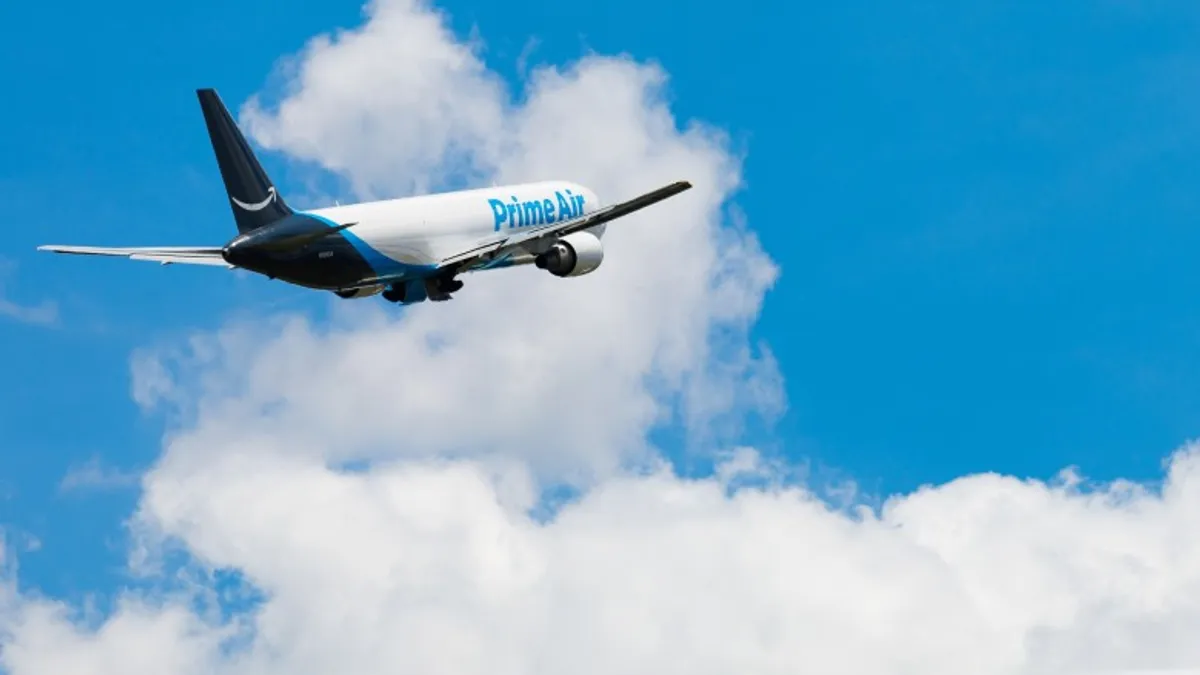Dive Brief:
- Amazon is expanding its airfreight capacity with an investment in 11 new Boeing 767-300s that will be added to its Air network over the course of the next two years, according to a press release.
- Four planes purchased from WestJet will begin operations in the fleet this year after being converted from passenger to cargo operations. The other seven planes, bought from Delta, will come online in 2022. This is the first time Amazon has purchased jets, a spokesperson confirmed. Previously, Amazon's airfreight expansion has been done through leasing capacity.
- "Having a mix of both leased and owned aircraft in our growing fleet allows us to better manage our operations, which in turn helps us to keep pace in meeting our customer promises," Sarah Rhoads, vice president of Amazon Global Air, said of the investment in a statement.
Dive Insight:
The purchase of 11 aircraft comes at a time when the procurement of airfreight has become increasingly difficult, due to the reduction in passenger flights, which accounted for roughly half of air cargo capacity before the pandemic. At the same time, e-commerce demand set records over the course of 2020.
Amazon's fulfillment speeds and its promise of one-day delivery struggled in the early days of the pandemic.
"As we add capacity, we're trying to resume more normal operations as far as the shipping of nonessential items and the speeding up of one-day shipments," Amazon Chief Financial Officer Brian Olsavsky said on the company's April earnings call.
This isn't the company's first capacity expansion in recent months. Atlas Air, which leases planes to Amazon, said recently it has worked with the retailer to grow its network.
"We’ve also expanded operations for Amazon, where we began flying three additional 737 freighter since September," Atlas Air CEO John Dietrich said on the company's earnings call in November. "We're now operating eight, 737s for Amazon, complementing the large fleet of 767s that we have with them."
A report that came out last year estimated that Amazon Air could grow its fleet to include 200 airplanes by 2027, which would make it one of the largest cargo fleets in operation behind only FedEx and UPS.
It also means Amazon doesn't have to rely on third-party logistics companies to move its inventory, which might not always have the capacity or make the decisions the retailer would like. The continued investment in its air network is important for the company's ability to live up to its promises of same-day delivery, experts say.















